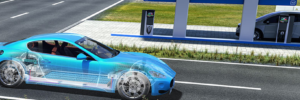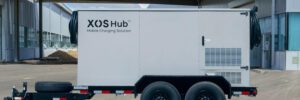
Testing charging stations is a critical component of ensuring their reliability and functionality in the rapidly evolving EV ecosystem. Using HIL simulators for these tests provides a controlled and efficient environment for assessing various aspects of the charging station performance. These simulations can replicate real-world scenarios such as various EV models, the evaluation of charging speed, various power levels, compatibility with different charging standards, and other charging parameters.
Also, simulators enable thorough testing of software components, such as user interfaces and communication protocols.
Join this webinar at the Fall Virtual Conference on EV Engineering to learn about the dSPACE Smart Charging solution that allows the simulation of the electric vehicle as well as the charging equipment on signal level and power level, offering a powerful workflow to bring electric vehicle behavior on power level to the lab.
Other sessions at our Fall Virtual Conference include:
Optimizing Power and Information Flow in EV Systems: Strategies for Harness Protection and Routing

As the automotive industry shifts focus toward EVs, the need for harness protection remains high.
In this webinar, presented by tesa tape, we will outline the problems currently faced, application areas and testing, and design solutions. We will look to the future and discuss innovations in the field as well as outline how tesa partners with our customers to find tomorrow’s solutions, today.
See the full session list for the Fall Virtual Conference on EV Engineering here.

Broadcast live on October 2-5, 2023, the conference content will span the EV engineering supply chain and ecosystem, including motor and power electronics design and manufacturing, cell development, battery systems, testing, powertrains, thermal management, circuit protection, wire and cable, EMI/EMC and more.
from Charged EVs https://ift.tt/Ncz6EW5


No comments:
Post a Comment